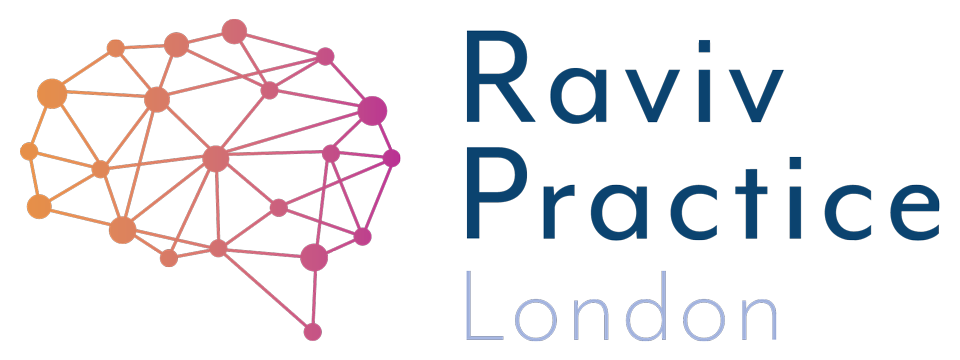“My child is in the 99th percentile for reading but he is not able to tell me when he is hungry or thirsty”
How do we rate intelligence? And what should we really be looking for in our children?
Traditionally, our mainstream education system tells us that a child is successful when they achieve at classic activities, such as reading and writing. We rarely associate academically bright children with learning difficulties or other cognitive issues, so they can often go overlooked when a child generally does well in their studies.
However, there are a number of different types of intelligence and cognitive awareness that go into a child or adult leading a happy and productive life that don’t fall into these traditional categories. These days, we are more aware of issues such as dyslexia and ADHD and how they can affect us, but other, more subtle difficulties can be difficult to understand, even though they are just as important.
“Every week, there is a near accident in the toilet department. ”
For example, I recently spoke to a parent of an eight-year-old boy who is in the 99th percentile with his reading ability. He is a very fast learner and enjoys reading, and his achievements in this area are way above most of his peers. His mother is delighted with this, and very proud, of course, but this is only part of the picture and there are other things he struggles with a great deal.
Every week, there is a near accident in the toilet department. He doesn’t seem to know when he is hungry, cold or thirsty, and his teachers report that he is socially aloof. So, what could be going on here?
Fortunately, my experience and knowledge as a therapist means I can recognize this as a problem with something called “introception”, and I know that there are ways it can be worked on and improved.
“Importantly, tuning into our bodies should be natural because it is not a conscious process. ”
What is Introception?
Introception is better known as our body's ability to understand messages from our internal organs. For example, the sense we have that we may feel hungry or thirsty, or the feeling we have when those needs are fulfilled. Ignoring, or not understanding, these feelings can cause all sorts of problems. Ignoring signs of hunger, for instance, can lead to malnutrition, or ignoring the sensation of being full can lead to overeating, or eating out of habit.
Importantly, tuning into our bodies should be natural because it is not a conscious process. As children grow, they learn the signs and signals their bodies provide; they, in turn, respond and validate the message. However, learning about introception is a difficult skill to acquire, and many children, and even adults, need help in developing it.
Language and experience play a big part in learning to understand one's body. For example, we can drink a lot of water and experience a full bladder, thus realising the relevant cues. Learning this way takes considerable time and a patient mindful approach. However, this mindfulness can create tremendous in roads towards understanding introspection, and so is very beneficial to train. It something we can all benefit from in one way or another, whether or not we have trouble with introspection. The basic exercises are quite simple and something we can all try, and the below exercise is something that you can try yourself at home.
A quick exercise in Introception.
Sit in your favourite chair, feet touching the floor. Have one hand on your navel (near the belly button) and the other on your chest. Sit still in this position for 10 to 20 seconds. Experience the rise and fall of your tummy and the beating of your heart. Ignore the outside world as you enjoy this moment. This is easy to say, but not always easy to do! Giving yourself the time and space to enjoy this exercise properly takes practice, but it will come.
Listening to our breathing is an activity that takes us away from any perceived stress. Achieving a level of calmness within our nervous system is the key to weathering emotional storms, and understanding what our body is telling us. A mindful approach can be a top-down way to bring awareness and improve our understanding of our bodies. Also, while introspection focuses on awareness of our organs, we are actually receiving messages from our nervous system, so giving ourselves the ability to better understand our body’s signals naturally leads to better introspection.
In comparison, when your body processes sensations automatically it is termed neuroception. Neruoception is a response to all sensory triggers, internal and external, and can be categorized as a bottom-up process. Introception is part of this, but it also includes all signals we receive externally, such as body temperature, environmental conditions, and the character of sounds that we hear. Once we can read the external cues around us, it impacts our internal environment. Feeling cold can trigger a need to drink something warm. The warmth of the drink is reassuring and helps us feel comfortable again.
It is also a huge part of how we understand if we are safe or not, and is also very important in how we understand the emotions of others in particular, as it also helps us interpret the tones of their voices: whether they are gentle and friendly, or angry and threatening.
As it is our nervous system that gives us these important messages, these skills don’t just affect us physically, they also affect how we interpret our emotional state and how we decide to act on our emotions.
What happens when we can't tap into our feelings?
Those individuals who have trouble connecting to their feelings are not always sure how to react at times. Those disconnected from their emotions can appear quite aloof to the outside world. Things can move from everything being ok one minute to having a meltdown the next as subtle cues go unnoticed until it is too late and they become overwhelming. This, in turn, can make it difficult for others to know how to interpret this behaviour and interact with that person.
For example, something like a grazed knee can be squeamish to some, but the person with weak neuroception cannot always understand the slightness of the wound, and may react with emotions that seem inappropriate to the actual event.
When it comes to interacting with others, this has a much deeper meaning. If we can't respond appropriately to our grazed knees, we cannot show empathy for someone else's suffering. Nor can we offer them a warm drink on a cold day because we don't understand they may be feeling cold in the first place. This leads to awkward social interaction and a feeling of being confused, which is where that sense of aloofness from a person with poor neuroception often comes from, as well as their apparent lack of empathy.
A solution to build on our awareness.
Ultimately, we need both neuroception and introception as it fosters a feeling of safety. Not feeling safe because we don't understand how to read the environment and those around us can lead to a poor sense of self and be linked to mental health problems.
There is a whole science of feeling safe which forms the basis of the therapy we offer at Raviv Practice London called the Safe and Sound protocol.
This therapy allows the individual's nervous system to understand and communicate with processes within the body. The ability to tune in to your bodily needs, and to appear more connected to others, happens over a period of time with some remarkable results.
If you would like to find out more about this or other topics covered in the blog please feel free to contact me for a chat. Connecting is a beautiful thing.
Dyslexia? Dyspraxia? ADHD? ASD? Speech & Language? Developmental Delay? Anxiety?
Is every school day a struggle? As a parent, you may feel exhausted and on this journey alone. Each year you see the gap getting wider. You need to do something - change the approach, help your child learn for themselves, find a way to turn this around - to help while you can - do this NOW. the first step is free.
About the Author
Usha Patel is a Neurocognitive Therapist and Director at Raviv Practice London. Parents searching to help their suspected/neurodiverse child can get evidence-based solutions with results in as little as 8 weeks. Those in search of jargon-free help can get started straight away.


